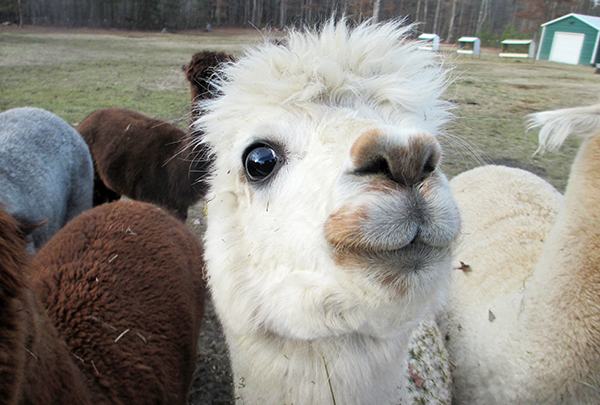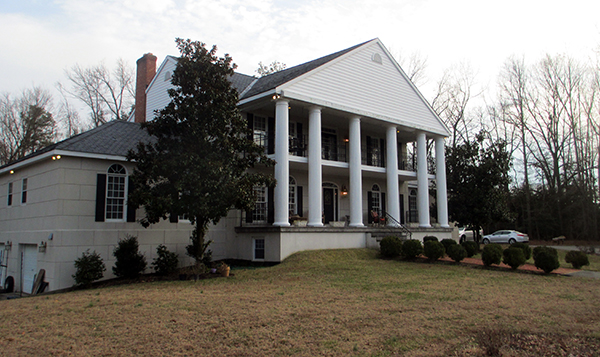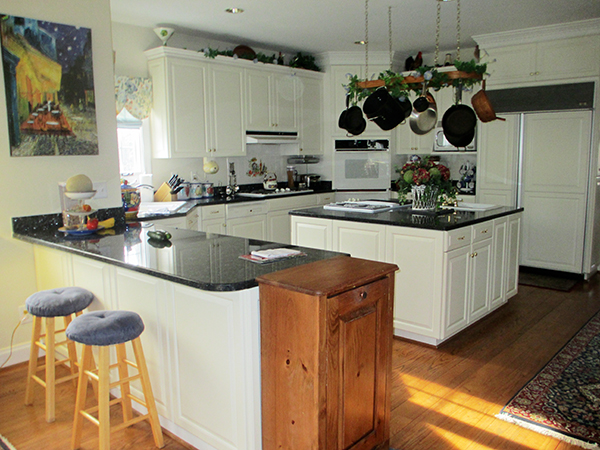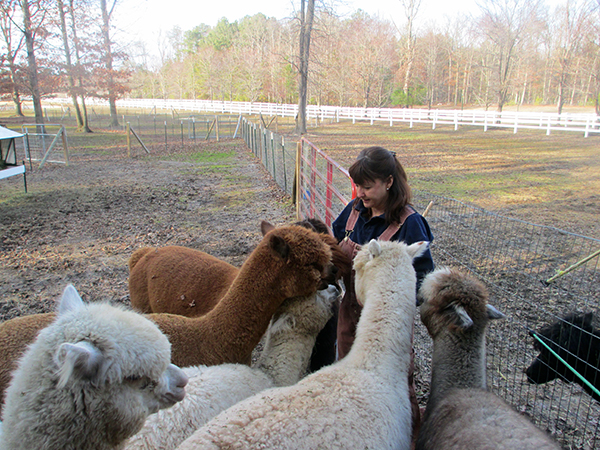Six bedrooms, 5.5 baths and a herd of prized alpacas: Those are just a few of the selling points boasted by Ashland Alpacas, a 23-acre Hanover County homestead listed in January for $1.2 million.
In addition to the 20 alpacas that call it home, James and Marian Holmes have lived on the property in a 5,281-square-foot, colonial-style home at 13055 Ashland Road for 18 years. Marian Holmes started raising alpacas seven years ago, looking to do something fun with the land after the children grew up and moved away.
“She went from a couple of kids to 20,” joked Jim Duke, a Realtor with Hometown Realty in Ashland who’s handling the listing.
Holmes said that she hates to part ways with the home and her beloved alpacas, several of which are champions, but that it is time to downsize.
The house, built in 1996, features large formal living and dining rooms, a family room, a Florida room, a finished basement and a pool, as well as two bars. The alpaca barn has a small apartment on the second floor.
The alpacas can be included in the sale. If the new owner isn’t interested in them, Holmes said she could find them a new home.
“If I had my dream buyer, it would be someone who wants to carry on with the alpacas,” she said, noting that she’d be glad to come over to help.
Duke said the fenced property could also easily be converted to a horse farm.
Holmes said she loves educating people about alpacas when she’s out showing the animals or selling items made from their wool, which has to be sheared annually to prevent overheating.
Alpacas are easy to care for, Holmes said. They eat about 2 percent of their body weight in hay each day, and Holmes supplements their diet with some grain. In summer, they’ll also eat grass that grows in the field.
“You don’t have to have anything fancy for an alpaca farm,” Holmes said.
She estimated it costs $350 to $400 a year to feed each alpaca. Immunizations add on about another $300 a year for the entire herd.
Alpacas, cousins of the llama, learn quickly and can be taught tricks, Holmes said. And each of the Ashland alpacas has a name: Paladin and Betsy, for example.
“They are very curious,” Holmes said. “They know their names.”
Six bedrooms, 5.5 baths and a herd of prized alpacas: Those are just a few of the selling points boasted by Ashland Alpacas, a 23-acre Hanover County homestead listed in January for $1.2 million.
In addition to the 20 alpacas that call it home, James and Marian Holmes have lived on the property in a 5,281-square-foot, colonial-style home at 13055 Ashland Road for 18 years. Marian Holmes started raising alpacas seven years ago, looking to do something fun with the land after the children grew up and moved away.
“She went from a couple of kids to 20,” joked Jim Duke, a Realtor with Hometown Realty in Ashland who’s handling the listing.
Holmes said that she hates to part ways with the home and her beloved alpacas, several of which are champions, but that it is time to downsize.
The house, built in 1996, features large formal living and dining rooms, a family room, a Florida room, a finished basement and a pool, as well as two bars. The alpaca barn has a small apartment on the second floor.
The alpacas can be included in the sale. If the new owner isn’t interested in them, Holmes said she could find them a new home.
“If I had my dream buyer, it would be someone who wants to carry on with the alpacas,” she said, noting that she’d be glad to come over to help.
Duke said the fenced property could also easily be converted to a horse farm.
Holmes said she loves educating people about alpacas when she’s out showing the animals or selling items made from their wool, which has to be sheared annually to prevent overheating.
Alpacas are easy to care for, Holmes said. They eat about 2 percent of their body weight in hay each day, and Holmes supplements their diet with some grain. In summer, they’ll also eat grass that grows in the field.
“You don’t have to have anything fancy for an alpaca farm,” Holmes said.
She estimated it costs $350 to $400 a year to feed each alpaca. Immunizations add on about another $300 a year for the entire herd.
Alpacas, cousins of the llama, learn quickly and can be taught tricks, Holmes said. And each of the Ashland alpacas has a name: Paladin and Betsy, for example.
“They are very curious,” Holmes said. “They know their names.”







Hmm. I wonder if the city would mind if I raised a small herd of alpacas in my back yard.